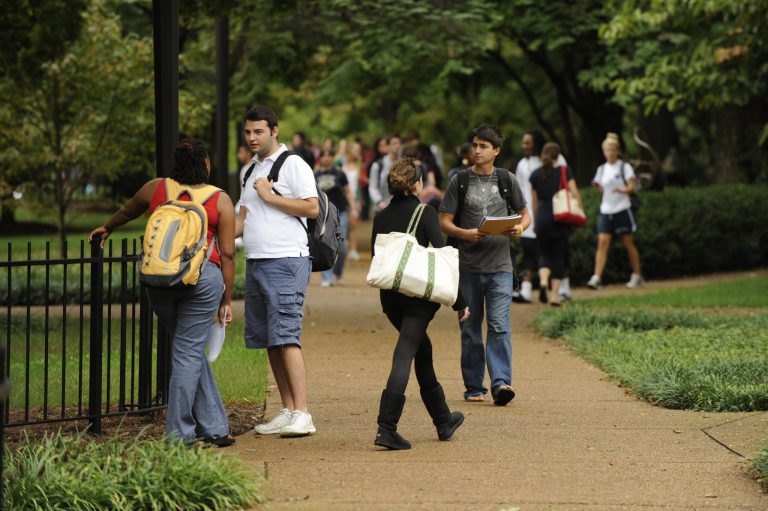
In February this year, Times Higher Education (THE) reported that Regent’s University London had become the latest UK university to implement liberal arts degrees to its body of courses, mirroring those on offer at top U.S. institutions.
Regent’s joins a host of other prestigious institutions that are trying out the model for the very first time. University College London, for example, now hosts an arts and sciences programme that awards a liberal arts-type degree, encouraging interdisciplinary learning among participating students. King’s College London also provides a similar scheme, along with the likes of Birmingham University and the University of Exeter.
According to Lawrence Phillips, head of Regent’s American College London, the department running Regent’s new U.S-style courses (who welcomed their second intake of students in January) the programme is the first in the UK to completely duplicate the widespread U.S. model. “This is due, the university says, to modules having been specifically designed for the liberal arts degrees, rather than being a compilation of modules from different university departments,” notes THE.
Liberal arts in the UK: how are students finding the model?https://t.co/Qljiqy2KDM pic.twitter.com/6W9GvYj942
— TimesHigherEducation (@timeshighered) February 7, 2016
The typical UK model of higher education is one that prefers depth over breadth; courses are disciplinary and often highly-specialised, producing qualified graduates with concentrated expertise in one particular area. This means the curriculum is rigid and intensely-focused, forcing students whose interests cross multiple fields of study to hone in on just one or the other.
“Should [UK] higher education be in the business of narrowing learning horizons?” says Professor Jackie Labbe, Pro-Vice-Chancellor of the Faculty of Arts and Humanities at the University of Sheffield.
Many consider the liberal arts pathway a solution to the restrictive single or dual-Honours route. The provision of multiple disciplines provides the breadth that’s lacking in the UK’s current model, while the opportunity to pursue a major allows for comprehensive, in-depth study of a specialised field. This works particularly well in the U.S. where disciplinary specialisation is reserved for postgraduate level, pursued by students with a keen drive to master subject-based expertise.
have just lowered my mood significantly by looking at where I could do liberal arts and sciences in the UK, only 3 unis lmao, 2 are A*AA
— rhian (@rye_face) March 16, 2016
In short, liberal arts graduates are granted freedom of choice where traditional graduates are not; flexible guidelines ensure students cover their passions in sufficient enough detail for them to succeed, while the option to pursue a major and minor discipline means they are not forced to choose between fields.
Florence Gomez, director of liberal arts at Exeter University, claims that the institution’s programme “supports students to be fully founded thinkers who can solve global problems and work across a range of disciplines.”
According to THE, graduate recruiters are also noticing the benefits of liberal arts skill within the professional sphere.
“What employers increasingly want are people who have the ability to go from the macro to the micro and back again very rapidly,” claims Dr Diana Spencer, dean of liberal arts and sciences at Birmingham University.
There’s no one “type” of student who goes to a smaller #LiberalArts college. They come from all backgrounds: https://t.co/CSwKVMd4Gx
— Libby and Art (@SmartColleges) April 15, 2016
Sheffield’s Professor Labbe, however, has a different opinion. She does not believe the introduction of the liberal arts into UK education is necessary, with Sheffield instead creating a Combined Honours Triple degree that gives students the chance to blend three different subjects through guided module choice.
“Our degree is emphatically not liberal arts (yet): although the aim is to create opportunities for study in the sciences and other disciplines, this will require careful thought and discussion, particularly for lab-based subjects and those with accreditation requirements,” she says.
“While I don’t believe that university course content should be led by the not always fully informed opinions of the ‘employers’, I am sure that graduates who can think flexibly and creatively, apply concepts outside their usual contexts, and work across barriers imposed by knowledge silos, are eminently ‘employable’.”
Image via Flickr.
Liked this? Then you’ll love these…
THE reveals best UK universities for student experience 2016
Agriculture is now the fastest growing discipline at UK universities







